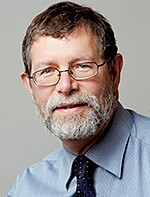Pulmonary Health, ARDS, COVID-19 and Air Pollution: Connecting the Science
1:00 pm US Eastern Time
Slides & Resources
Slides
John Balmes: Air Pollution and Health.
Jongeun Rhee: Air Pollution and Risk of ARDS.
Resources
Frey HC, Adams PJ, Adgate JL, Allen GA, Balmes J, Boyle K, Chow JC, Dockery DW, Felton HD, Gordon T, Harkema JR, Kinney P, Kleinman MT, McConnell R, Poirot RL, Sarnat JA, Sheppard L, Turpin B, Wyzga R. (2020). The Need for a Tighter Particulate-Matter Air-Quality Standard. N Engl J Med. 13; 383(7):680-683. doi: 10.1056/NEJMsb2011009.
Ware LB, Zhao Z, Koyama T, May AK, Matthay MA, Lurmann FW, Balmes JR, Calfee CS. (2016) Long-Term Ozone Exposure Increases the Risk of Developing the Acute Respiratory Distress Syndrome. Am J Respir Crit Care Med. 193(10):1143-50.
Reilly JP, Zhao Z, Shashaty MGS, Koyama T, Christie JD, Lanken PN, Wang C, Balmes JR, Matthay MA, Calfee CS, Ware LB. (2019). Low to Moderate Air Pollutant Exposure and Acute Respiratory Distress Syndrome after Severe Trauma. Am J Respir Crit Care Med. 199(1):62-70.
Schraufnagel DE, Balmes JR, Cowl CT, De Matteis S, Jung SH, Mortimer K, Perez-Padilla R, Rice MB, Riojas-Rodriguez H, Sood A, Thurston GD, To T, Vanker A, Wuebbles DJ. (2019). Air Pollution and Noncommunicable Diseases: A Review by the Forum of International Respiratory Societies' Environmental Committee, Part 1: The Damaging Effects of Air Pollution. Chest. 155(2):409-416.
Schraufnagel DE, Balmes JR, Cowl CT, De Matteis S, Jung SH, Mortimer K, Perez-Padilla R, Rice MB, Riojas-Rodriguez H, Sood A, Thurston GD, To T, Vanker A, Wuebbles DJ. (2019) Air Pollution and Noncommunicable Diseases: A Review by the Forum of International Respiratory Societies' Environmental Committee, Part 2: AirPollution and Organ Systems. Chest. 155(2):417-426.
Rhee, J., D.C. (2019). Impact of Long-Term Exposures to Ambient PM2.5 and Ozone on ARDS Risk for Older Adults in the United States. Chest. 2019 Jul; 156(1): 71–79. doi: 10.1016/j.chest.2019.03.017.
National Cancer Institute: Division of Cancer Epidemiology and Genetics. Current Fellows in the Occupational and Environmental Epidemiology Branch. Jongeun Rhee, Sc.D., M.S. – Postdoctoral Fellow.
, X., , R.C., , B.M., , D., Exposure to air pollution and COID-19 mortality in the United States: A nationwide cross-sectional study. MedRXiv. doi: 10.1101/2020.04.05.20054502.
Wu, X., Braun, D., Schwartz, J., Kioumourtzoglou, M. A., & Dominici, F. (2020). Evaluating the impact of long-term exposure to fine particulate matter on mortality among the elderly. Science Advances, 6(29), eaba5692.
There is substantial scientific evidence linking many respiratory conditions to chronic and acute exposures to air pollution. Recent publications found an association between ambient air pollution and acute respiratory distress syndrome (ARDS) and the risk of mortality from COVID-19. To open this webinar, Dr. John Balmes discussed how air pollution affects health throughout the life course from in utero exposures through childhood into older adulthood. He provided an overview of the public health impacts of three of the most important pollutants – ozone, nitrogen dioxide (NO2), and fine particulate matter (PM2.5). He presented findings from the first studies that showed an association between exposure to ozone or PM2.5 and ARDS. ARDS is a type of acute lung injury that causes some people with COVID-19 to develop severe hypoxemia (low oxygen tension in the blood), require intensive care, and be placed on mechanical ventilation. Dr. Balmes will also review the emerging literature on the association between exposure to air pollution and COVID-19.
Chronic exposures to particulate matter and ozone pollution can affect respiratory function. ARDS is precipitated by conditions such as infection or toxic inhalation and has a high mortality. It is most common among older adults, with the average age of developing ARDS around 62 years and a mortality rate ranging from 69% to 80% among older adult patients compared to 40% to 60% in the general population. However, few epidemiology studies have investigated an association between air pollution and the risk of ARDS. During this webinar, Dr. Jongeun Rhee presented her study examining data from nearly 30 million Medicare beneficiaries (≥ age 65) per year discharged from American hospitals from 2000 through 2012. Dr. Rhee and colleagues found that long-term exposures to PM2.5 and ozone were associated with increased risk of ARDS among older adults in the United States, including exposures below current annual US National Ambient Air Quality Standards. Dr. Rhee closed her talk with a discussion of the current evidence linking air pollution and ARDS.
To conclude, Dr. Xiao Wu presented his recent study, leveraging 16 years of data—68.5 million Medicare enrollees, in which he and co-authors provided strong evidence of the causal link between long-term air pollution exposure and mortality under a set of causal inference assumptions. Assessing whether long-term exposure to air pollution increases the severity of COVID-19 health outcomes, including death, is an important public health objective. However, limitations in COVID-19 data availability and quality remain obstacles to conducting conclusive studies on this topic. At present, publicly available COVID-19 outcomes data for representative populations are available only as area-level counts. During this webinar, Dr. Wu discussed these challenges in the context of one of the first preliminary investigations of the relationship between air pollution and COVID-19 related mortality in the US. Investigators found that higher historical PM2.5 exposures are positively associated with higher county-level COVID-19 mortality rates after accounting for many area-level confounders. Motivated by this study, they lay the groundwork for future research on this important topic, describe the complex challenges, and outline promising directions and opportunities. Research on how modifiable factors may exacerbate COVID-19 symptoms and increase mortality risk is essential to guide policies and behaviors to minimize fatality related to the pandemic. Such research could provide a strong scientific argument for revision of the US national PM2.5 standards and other environmental policies in the midst of a pandemic.
Featured Speakers
 John R. Balmes, MD, is Professor of Medicine at UCSF and Professor of Environmental Health Sciences in the School of Public Health at UC Berkeley. He is an Attending Physician in the UCSF Division of Occupational and Environmental Medicine and the Division of Pulmonary and Critical Care Medicine at the Zuckerberg San Francisco General Hospital. At UC Berkeley, he is the Director of the Northern California Center for Occupational and Environmental Health and the UC Berkeley-UCSF Joint Medical Program. He is also one of the Principal Investigators of the Children’s Health and Air Pollution Study (CHAPS) in Fresno. Dr. Balmes has been studying the effects of occupational and environmental agents on respiratory, cardiovascular, and metabolic health for over 40 years. He was appointed Physician Member of the California Air Resources Board in 2008.
John R. Balmes, MD, is Professor of Medicine at UCSF and Professor of Environmental Health Sciences in the School of Public Health at UC Berkeley. He is an Attending Physician in the UCSF Division of Occupational and Environmental Medicine and the Division of Pulmonary and Critical Care Medicine at the Zuckerberg San Francisco General Hospital. At UC Berkeley, he is the Director of the Northern California Center for Occupational and Environmental Health and the UC Berkeley-UCSF Joint Medical Program. He is also one of the Principal Investigators of the Children’s Health and Air Pollution Study (CHAPS) in Fresno. Dr. Balmes has been studying the effects of occupational and environmental agents on respiratory, cardiovascular, and metabolic health for over 40 years. He was appointed Physician Member of the California Air Resources Board in 2008.
 Jongeun Rhee, ScD, MS, is a postdoctoral fellow in the Occupational and Environmental Epidemiology Branch (OEEB), Division of Cancer Epidemiology and Genetics (DCEG), National Cancer Institute (NCI). Her current research focuses on investigating cancer risks associated with environmental exposures e.g. air pollution, organic chemicals, and heavy metals. She is also interested in how the disproportionate distribution of these exposures together with other societal inequities across communities is associated with cancer health disparities. With her interest, she is co-organizing the Fellows' Cancer Health Disparities Interest Group in DCEG. Dr. Rhee completed her Sc.D. in environmental health from Harvard T.H. Chan School of Public Health in Boston, MA. For her dissertation research, she investigated associations between air pollution, industry, and socioeconomic status and acute respiratory distress syndrome (ARDS) among older adults in the United States.
Jongeun Rhee, ScD, MS, is a postdoctoral fellow in the Occupational and Environmental Epidemiology Branch (OEEB), Division of Cancer Epidemiology and Genetics (DCEG), National Cancer Institute (NCI). Her current research focuses on investigating cancer risks associated with environmental exposures e.g. air pollution, organic chemicals, and heavy metals. She is also interested in how the disproportionate distribution of these exposures together with other societal inequities across communities is associated with cancer health disparities. With her interest, she is co-organizing the Fellows' Cancer Health Disparities Interest Group in DCEG. Dr. Rhee completed her Sc.D. in environmental health from Harvard T.H. Chan School of Public Health in Boston, MA. For her dissertation research, she investigated associations between air pollution, industry, and socioeconomic status and acute respiratory distress syndrome (ARDS) among older adults in the United States.
 Xiao Wu, MS, LLB, is a PhD candidate in the Department of Biostatistics at Harvard University. His research interests lie in developing causal inference methods to address methodological needs in the environmental health and public policy evaluation of health claims databases. His current work focuses on developing robust and interpretable causal inference methods to handle continuous and error-prone exposures. He is also working on collaborative projects to design Bayesian clinical trials, meta-analysis, and real-world evidence studies.
Xiao Wu, MS, LLB, is a PhD candidate in the Department of Biostatistics at Harvard University. His research interests lie in developing causal inference methods to address methodological needs in the environmental health and public policy evaluation of health claims databases. His current work focuses on developing robust and interpretable causal inference methods to handle continuous and error-prone exposures. He is also working on collaborative projects to design Bayesian clinical trials, meta-analysis, and real-world evidence studies.
This webinar was moderated by Karen Wang, PhD, director of CHE. It lasted for 70 minutes and was recorded for our call and webinar archives.


